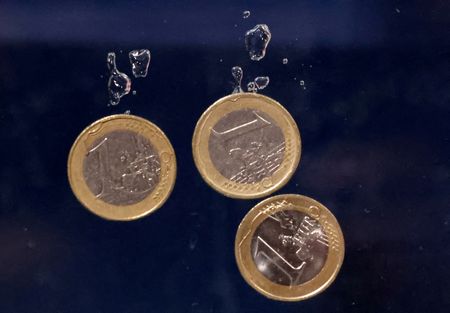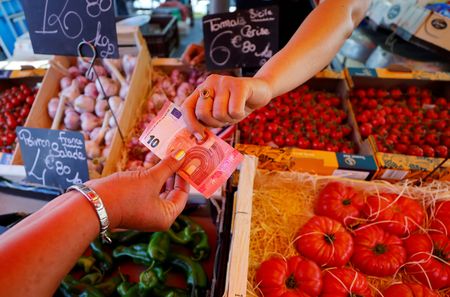FRANKFURT (Reuters) – Cash is losing its top spot as the euro zone’s dominant means of payment, a European Central Bank survey showed on Tuesday, in a historic shift for a part of the world that lagged peers in switching to new ways of settling bills.
The ECB survey showed cards took the lion’s share of money spent at shops, restaurants and other points of sale in the euro zone – a first since the central bank started to poll consumers in 2016.
Cash is a politically divisive topic in parts of the euro zone such as Germany and Italy, where it is viewed as upholding privacy and defending against bank fees, or vilified as a facilitator of tax evasion.
The ECB’s survey showed consumers in the euro zone were finally yielding to the convenience of card and digital payments, which have long prevailed in other rich parts of the world such as Northern Europe and the United States.
The survey showed cards were used for 46% of all euros paid at points of sales, beating cash for the first time.
Cash retained its primacy in terms of the numbers of transactions but its lead narrowed to just 59% compared with 72% in 2019.
The range between countries was staggering, however, with cash still accounting for 70% or more of point-of-sales payments in Malta, Slovenia and Austria while it stood at around 20% in the Netherlands and Finland.
Contrary to expectations, the COVID-19 pandemic was not seen as a turning point by respondents, with over half saying they were using cash just as often as before the pandemic era.
But 37% respondents said they were buying more often online, which explained a doubling in online payments for one-off purchases to 28% from 14% in 2019, based on the value of transactions.
(Reporting by Francesco Canepa, Editing by Louise Heavens)


